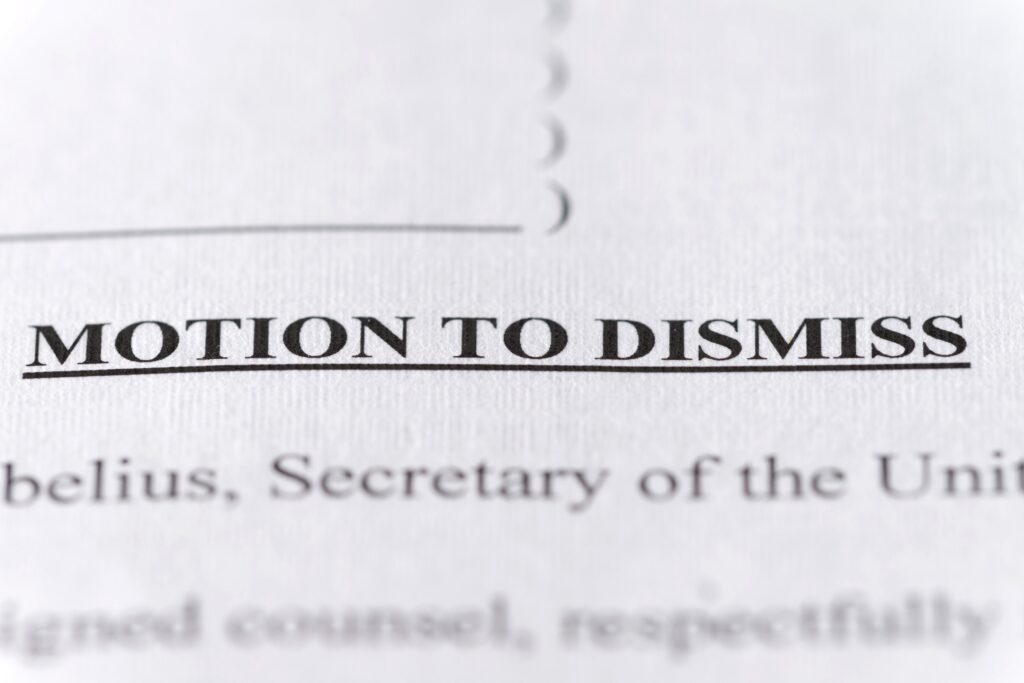What is a Lis Pendens, and When Would One Come up?

Lis Pendens, Latin for “suit pending” or “pending suit,” is a legal notice informing the world that a lawsuit has been filed concerning the title to, or ownership of, a certain piece of real estate. One of the more common scenarios in which a lis pendens is obtained is when a lender begins a foreclosure action.
Beyond foreclosure, other scenarios include:
- Disputes as to ownership of the property;
- Claims of adverse possession, and
- Right of way, access, or other easement/encumbrance claims.
A lis pendens effectively puts an “all stop” on any transaction to sell or finance the subject property, much like an injunction or prejudgment attachment.
What is the Process to Obtain a Lis Pendens?
In Massachusetts, a lis pendens is effectuated by the filing of a verified complaint “nam[ing] as defendants all owners of record and any party in occupation under a written lease.” See G.L. c. 184, §15(b).

Then, upon Motion, “if the subject matter of the action constitutes a claim of a right to title to real property or the use and occupation thereof or the buildings thereon,” a judge will make that finding and endorse a Memorandum of Lis Pendens. Such a finding typically requires a hearing, particularly in Superior Court, with notice to the Defendants.
It is also possible for a memorandum of lis pendens to be endorsed and provided ex-parte, meaning without notice to the other side, if a judge finds that either:
(1) the defendant is not then subject to the jurisdiction of the court in that action, or
(2) there is a clear danger that the defendant, if notified in advance of the endorsement of the memorandum, will convey, encumber, damage or destroy the property or the improvements thereon.
G.L. c. 184, §15(b)
Once the endorsed memorandum of lis pendens is received, it must be recorded in the Registry of Deeds for the county or district in which the property lies. This applies to both recorded and registered land in the Commonwealth.
How Can a Lis Pendens Be Attacked and Removed?

A party aggrieved by a lis pendens may file a motion to dissolve (remove) it. If a lis pendens has been granted ex-parte, the aggrieved party may move to dissolve it and can be heard within three days of providing notice to the Plaintiff.
Further, a party who believes that a lis pendens has been frivolously obtained may, pursuant to G.L. c. 184 § 15(c), file a special motion to dismiss to dissolve the memorandum of lis pendens. Pursuant to the statute:
The special motion to dismiss, unless heard at the time the claimant first applied for a judicial endorsement under subsection (b), shall be heard at the same time as the hearing on the motion to dissolve the memorandum of lis pendens. If the court determines that the action does not affect the title to the real property or the use and occupation thereof or the buildings thereon, it shall dissolve the memorandum of lis pendens.
The special motion to dismiss shall be granted if the court finds that the action or claim is frivolous because:
(1) it is devoid of any reasonable factual support; or
(2) it is devoid of any arguable basis in law; or
(3) the action or claim is subject to dismissal based on a valid legal defense such as the statute of frauds.
G.L. c. 184 § 15(c)
Right to Appeal
If a party is harmed by a ruling under G.L. c. 184 § 15(c), either by an ex-parte ruling or allowance/denial of a special motion to dismiss, Massachusetts G.L. c. 184 § 15(d) provides for a statutory right to appeal to a single justice of the appeals court pursuant to G.L. c. 231 § 118, within thirty (30) days.

The notice must also be recorded in the Registry of Deeds for the county or district in which the real property lies. Failure to appeal will result in the judgment becoming final.
If you are considering whether a lis pendens is appropriate for your current situation, or if a lis pendens has been placed on your property, schedule a free consultation to discuss your options to best protect your rights today!
No information in this blog post is to be construed as, nor is intended to be, legal or tax advice. Consult with competent legal counsel and/or tax professionals prior to taking any action. Do not rely on any information contained in this blog post as the law changes from time-to-time and this blog post may not be updated to reflect those changes.
© Zuccaro Law, LLC. All Rights Reserved.






